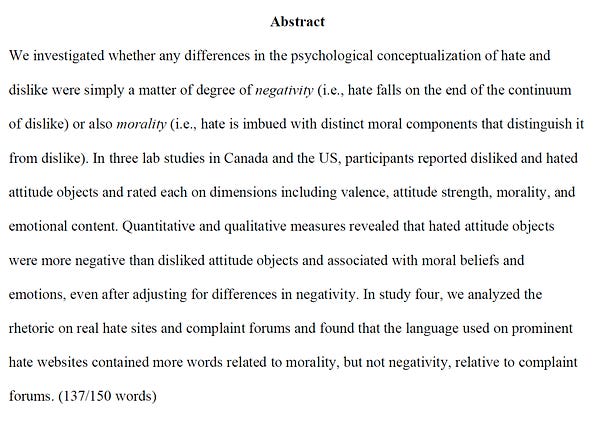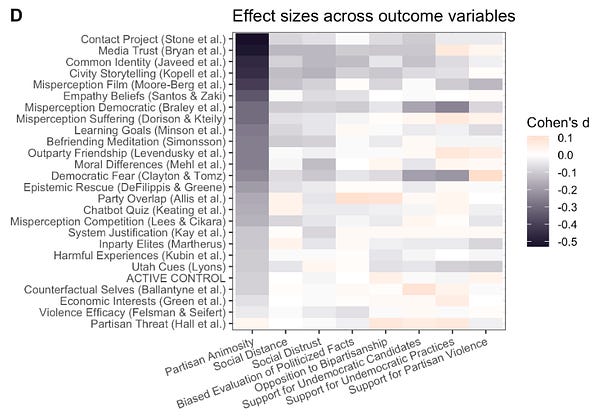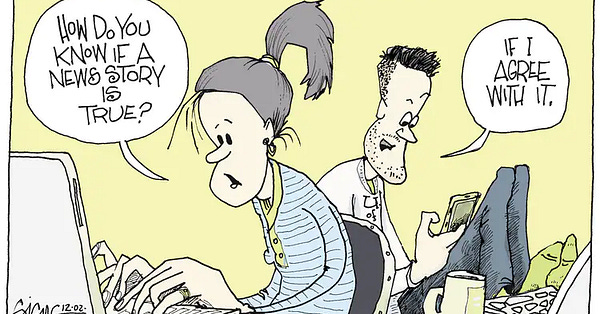The morality of liberal vs. conservative kids
Our latest research explains how kids use group identity to punish others
Punishment is an important part of humans’ evolutionary story: it provides us with a way to sanction those who cause harm. Indeed, the human tendency toward punishment is so strong that people often punish wrongdoers for actions that don’t directly affect us, even when it is costly to do so.
For example, if you saw a crime on the way to work (e.g., someone pickpocket another person across the street), it’s likely that you would seek to punish the transgressor even if doing so came at a cost to yourself (e.g., filing a police report, even it made you late for work). This behavior—termed costly punishment—is a striking feature of human nature and part of our sense of morality.
What motivates us to invest our resources to punish wrongdoers and who are we most likely to dole out this kind of punishment?
Prior research finds that political ideology shapes many dimensions of our punishment behavior, including when and who we choose to punish. To investigate how costly punishment takes shape in the first place, our research team (Rachel Leshin, Daniel Yudkin, Lily Kunkel, Marjorie Rhodes and Jay Van Bavel) thus sought to trace these ideological roots to childhood by exploring whether children’s punishment behavior is influenced by relates to the political ideology of their parents.
We conducted two experiments—one in New York City and one with families from across the U.S.—in which we showed children a moral transgression committed against another child and then observed whether or not they chose to punish the wrongdoer. We were particularly interested in whether we would find differences in children’s inclination to punish a wrongdoer from their own group (i.e., an in-group member) vs. a wrongdoer from a different group (i.e., an out-group member).
Cartoon from xkcd
Parents’ political ideology powerfully influenced predicted who children punished. Children with more liberal parents tended to punish in-group members, whereas those with more conservative parents tended to punish out-group members. We wondered whether other aspects of children’s environments that often map onto to political ideology (e.g., parental authoritarianism, neighborhood population size) might be driving our effects, but we found that parents’ political ideology was the only tested variable that accounted for our pattern of results.
Our study offers new insights into the origins of costly punishment behavior and hints at the transmission of politics and moral behavior across generations.

Future research should seek to pin down exactly which aspects of parents’ ideology are responsible for producing the group-based punishment effects we observed in children. Nonetheless, our research points to political ideology, broadly construed, as a fruitful window into children’s developing sense of morality and the human behaviors that define our evolutionary history.
New papers and pre-prints
Are the differences between hate and dislike simply a matter of degree of negativity? We have a new pre-print from Clara Pretus, Jennifer Lauren Ray, Yael Granot, William A. Cunningham and Jay presenting studies showing that hated attitudes are not only more negative than disliked attitudes, but also also related to moral beliefs and emotions. In terms of language used to express hate and dislike on real websites, our analysis also found that hate sites contain more words related to morality, but not negativity compared to complaint forums.
Read the pre-print here to learn more about the study:


Recently, our lab (Ali Javeed, Kim Doell, Steve Rathje and Jay) participated in the Strengthening Democracy Challenge, a mega-experiment initiated by Stanford University’s Polarization and Social Change Lab to identify effective strategies for reducing toxic polarization and improving Americans’ democratic attitudes. The result has just been released. Out of more than 250 submission and the 25 interventions tested, our proposed intervention-creating a common in-group identity-came into the 3rd place in terms of effectiveness for reducing intergroup animosity (and 5th for strengthening democracy)!
Read here to learn more about the effective interventions came up by us and other labs:


Our visiting PhD student Jesper Rasmussen has a pre-print on public health communication, together with Lasse Lindekilde and Michael Bang Petersen. They examined how health authority can mitigate the spread of misinformation on social media, studying interventions used in a real-world public health campaign circulated on social media in Denmark during the COVID-19 pandemic. Through providing elaborate, actionable and concrete advice to the public, misinformation sharing can be effectively decreased by boosting citizen’s sense of self-efficacy.
You can read the pre-print here:


We have a new publication by Anni Sternisko, Sylvain Delouvée and Jay on Journal of Experimental Social Psychology. We found a small, but positive and robust relationships between randomness dismissal and conspiracist ideation using both a high-powered preregistered replication of an influential study in the United States and Switzerland, and a meta-analysis of the literature. Make sure to check it out here!
Videos
Dominic Packer and Jay recently created animated 4 videos sharing research from our lab and the field on social identity and collective behavior. You can watch all the videos here and click on the images below.
Why people cling to false beliefs:
How to reduce intergroup discrimination:
What leads people to help others:
How effective leaders communicate:
In case you missed last month’s newsletter…


As always, if you have any photos, news, or research you’d like to have included in this newsletter, please reach out to the Lab Manager (nyu.vanbavel.lab@gmail.com) who writes our monthly newsletter. We encourage former lab members and collaborators to share exciting career updates or job opportunities—we’d love to hear what you’re up to and help sustain a flourishing lab community. Please also drop comments below about anything you like about the newsletter or would like us to add.
That’s all, folks—thanks for reading and we’ll see you next month!




